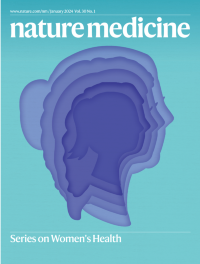Clinical Trial
PNOC026
PNOC026/DAY101-001: FIREFLY-1: A Phase 2, Open-Label, Multicenter Study to Evaluate the Safety and Efficacy of the Oral Pan-RAF Inhibitor DAY101 in Pediatric Patients with BRAF-Altered, Recurrent or Progressive Low-Grade Glioma
PNOC026 Study Publication
PNOC026 is now closed, and clinical trial results are now available as published and issued in Nature Medicine in January 2024.
viewable here:
Relapsed or progressive pediatric LGG is a serious, life-altering, and potentially fatal disease with significant disease-and treatment-associated morbidity. There is currently no standard of care for patients whose tumor progresses after initial therapy and no FDA-approved therapies. A majority of patients with pLGG have an alteration in BRAF; and using the Type II BRAF inhibitor DAY101 has been shown to penetrate the CNS and be well-tolerated in pediatric patients. This study aims to evaluate the efficacy and safety of DAY101 in pediatric patients with recurrent or progressive LGG with a known BRAF alteration.
To evaluate the overall response rate (ORR) as determined by an independent radiology review committee (IRC) and measured by the proportion of patients with best overall confirmed response of complete response (CR) or partial response (PR) by Response Assessment in Neuro-Oncology (RANO) criteria following treatment with DAY101 in pediatric patients aged 6 months to 25 years of age with a relapsed or progressive low-grade glioma (LGG) harboring a known activating BRAF alteration.
Inclusion Criteria:
- Age 6 months to 25 years with a relapsed or progressive LGG with known activating BRAF alteration
- Confirmation of histopathologic diagnosis of LGG and molecular diagnosis of activating BRAF alteration
- Must have received at least one line of systemic therapy and have evidence of radiographic progression
- Must have at least 1 measurable lesion as defined by RANO criteria
Exclusion Criteria:
- Patient’s tumor has additional previously-known activating molecular alterations
- Patient has symptoms of clinical progression in the absence of radiographic progression
- Known or suspected diagnosis of neurofibromatosis type 1 (NF-1)
- Other inclusion/exclusion criteria as stipulated by protocol may apply
This study is funded by Day One Biopharmaceuticals
Relapsed or progressive pediatric LGG is a serious, life-altering, and potentially fatal disease with significant disease-and treatment-associated morbidity. There is currently no standard of care for patients whose tumor progresses after initial therapy and no FDA-approved therapies. A majority of patients with pLGG have an alteration in BRAF; and using the Type II BRAF inhibitor DAY101 has been shown to penetrate the CNS and be well-tolerated in pediatric patients. This study aims to evaluate the efficacy and safety of DAY101 in pediatric patients with recurrent or progressive LGG with a known BRAF alteration.
To evaluate the overall response rate (ORR) as determined by an independent radiology review committee (IRC) and measured by the proportion of patients with best overall confirmed response of complete response (CR) or partial response (PR) by Response Assessment in Neuro-Oncology (RANO) criteria following treatment with DAY101 in pediatric patients aged 6 months to 25 years of age with a relapsed or progressive low-grade glioma (LGG) harboring a known activating BRAF alteration.
Inclusion Criteria:
- Age 6 months to 25 years with a relapsed or progressive LGG with known activating BRAF alteration
- Confirmation of histopathologic diagnosis of LGG and molecular diagnosis of activating BRAF alteration
- Must have received at least one line of systemic therapy and have evidence of radiographic progression
- Must have at least 1 measurable lesion as defined by RANO criteria
Exclusion Criteria:
- Patient’s tumor has additional previously-known activating molecular alterations
- Patient has symptoms of clinical progression in the absence of radiographic progression
- Known or suspected diagnosis of neurofibromatosis type 1 (NF-1)
- Other inclusion/exclusion criteria as stipulated by protocol may apply
This study is funded by Day One Biopharmaceuticals
Sites Offering This Trial
- CHICAGO, IL Ann & Robert H. Lurie Children’s Hospital of Chicago
- WASHINGTON, DC Children’s National Hospital
- DURHAM, NC Duke University Medical Center
- BALTIMORE, MD Johns Hopkins Hospital
- PERTH, AUSTRALIA Perth Children’s Hospital
- UTRECHT, THE NETHERLANDS Princess Maxima Center
- Queensland, Australia Queensland Children’s Hospital
- ST. LOUIS, MO St. Louis Children’s Hospital
- ISRAEL Sheba Medical Center
- SEATTLE, WA Seattle Children’s Hospital
- RANDWICK, AUSTRALIA Sydney Children’s Hospital
- HOUSTON, TEXAS Texas Children’s Hospital*
- PHILADELPHIA, PA The Children’s Hospital of Philadelphia
- ZURICH, SWITZERLAND University Children’s Hospital Zürich
- ANN ARBOR, MI University of Michigan – C.S. Mott Children’s Hospital
- SALT LAKE CITY, UT University of Utah
How to Enroll
If you believe your child or patient is eligible for this trial, contact the closest participating site or email us for more information.
